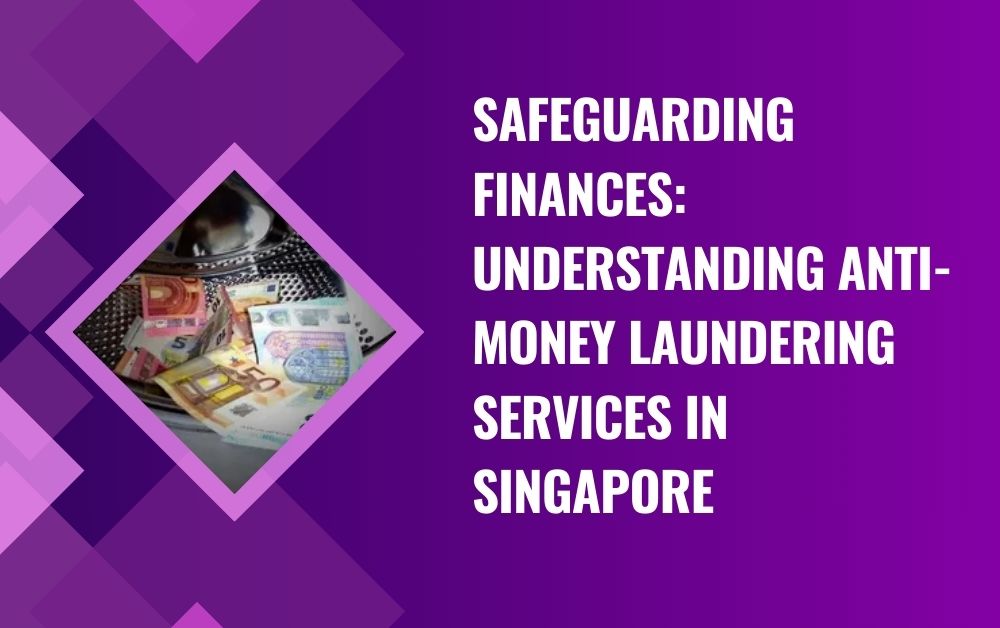Navigating the World of Anti-Money Laundering (AML) in Singapore
Money laundering is a global concern, and Singapore, as a financial hub, is not immune to its risks. In response, the city-state has implemented stringent measures to combat illicit financial activities through Anti-money laundering services in singapore. Understanding these services is crucial for individuals and businesses alike to safeguard their finances and contribute to a transparent financial ecosystem.
What is Money Laundering, and Why Does it Matter?
Money laundering involves disguising the origins of illegally obtained money, making it appear legitimate. Criminals engage in money laundering to evade law enforcement, hide illicit activities, and integrate ill-gotten gains into the legitimate economy. This process undermines financial integrity, fosters corruption, and poses significant risks to national security and economic stability.
The Role of Anti-Money Laundering Services
Anti-Money Laundering (AML) services encompass a range of strategies and practices designed to detect, prevent, and deter money laundering activities. In Singapore, these services are crucial components of the financial regulatory framework, aimed at maintaining the integrity of the financial system and upholding international standards.
Understanding the Regulatory Landscape in Singapore
Singapore’s commitment to combatting money laundering is evident in its robust regulatory framework. The key regulatory authorities overseeing AML efforts include the Monetary Authority of Singapore (MAS), the Commercial Affairs Department (CAD) of the Singapore Police Force, and the Attorney-General’s Chambers (AGC). Together, these agencies work to enforce laws and regulations that mandate financial institutions to implement effective AML measures.
Anti-Money Laundering Services in Action
Implementing effective AML services involves various components, including customer due diligence (CDD), transaction monitoring, and suspicious activity reporting. Financial institutions in Singapore are required to conduct thorough due diligence on their customers to verify their identities and assess the risk of potential money laundering activities. Transaction monitoring involves scrutinizing financial transactions for any unusual or suspicious patterns that may indicate money laundering. In case of any suspicious activity, financial institutions are obligated to report it to the relevant authorities for further investigation.
The Importance of Compliance and Reporting
Compliance with AML regulations is non-negotiable for financial institutions operating in Singapore. Failing to adhere to these regulations can result in severe consequences, including hefty fines, reputational damage, and even criminal prosecution. Therefore, it is imperative for businesses to invest in robust compliance programs and ensure timely and accurate reporting of suspicious activities.
Key Considerations for Businesses and Individuals
For businesses and individuals operating in Singapore, understanding and adhering to AML regulations are paramount. Here are some key considerations:
Stay Informed and Educated
Keep abreast of the latest developments in AML regulations and compliance requirements issued by regulatory authorities in Singapore. Investing in ongoing education and training for employees can help ensure compliance and mitigate the risk of money laundering activities.
Implement Robust Compliance Measures
Establish robust AML compliance programs tailored to the specific risks and operational characteristics of your business. This may include conducting regular risk assessments, enhancing customer due diligence procedures, and implementing robust transaction monitoring systems.
Foster a Culture of Compliance
Promote a culture of compliance within your organization, emphasizing the importance of ethical conduct and integrity in all business activities. Encourage employees to report any suspicious activities promptly and provide channels for confidential reporting.
Leverage Technology and Innovation
Harness the power of technology and innovation to enhance AML capabilities and streamline compliance processes. Utilize advanced analytics, artificial intelligence, and machine learning algorithms to detect and prevent money laundering activities more effectively.
Conclusion: Building a Resilient Financial Ecosystem
Anti-money laundering services play a critical role in safeguarding the integrity of Singapore’s financial system and protecting against the threats posed by money laundering and financial crime. By understanding the importance of AML regulations, businesses and individuals can contribute to a transparent and resilient financial ecosystem that fosters trust, integrity, and sustainable growth. Together, we can build a future where illicit financial activities have no place, ensuring a level playing field for all participants in the global economy.
NOTE : For more insightful articles related to this topic, feel free to visit toppersblogs


